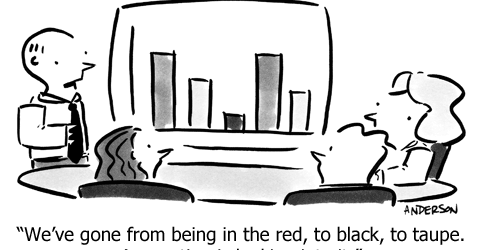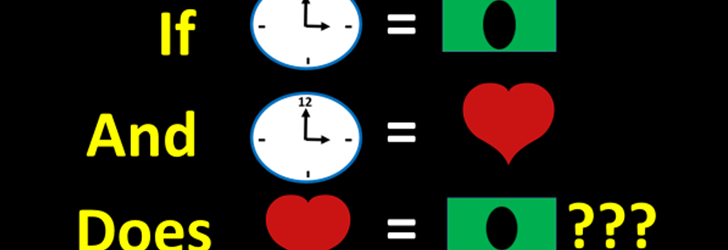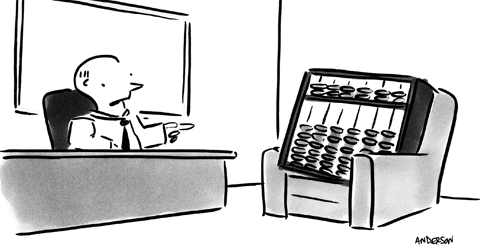The new guidance aims for clarity, consistency and transparency https://t.co/LxcrsEh7r6
— JournalofAccountancy (@AICPA_JofA) July 6, 2017
Posts with the bob steele cpa tag
Companies grapple with leasing standard complications
Companies are starting to grapple with some of the unexpected complications of the new lease accounting standard. https://t.co/01Pd8OFucU
— Accounting Today (@AccountingToday) July 6, 2017
The True Meaning of Debits and Credits
Although learning how debits and credits work is not an easy process, learning the definitions of debits and credits is and easy process. Debit can be defined as “recorded on the left side” (John J. Wild, 2015) and credit can be defined as “recorded on the right side” (John J. Wild, 2015). Note that these are partial definitions of debits and credits from the text, Fundamentals of Accounting, Wild 22nd, but they are the important parts, the parts that define what debits and credits are, the rest of the definition explaining what debits and credit do.
The definition of debits as, recorded on the left, and credits as, recorded on the right, implies something to be recorded on, some kind of board, paper, account, or ledger. A T-account can be imagined as the board, or ledger, used to record debits and credits, the debits being recorded on the left, the credits being recorded on the right.
When thinking about debits and credits in the context of financial transactions, entering financial data, and creating financial statements the definition above is the only definition we should have in mind. It is difficult to limit our thoughts and definition of debits and credits to the amount recorded on the left or right side of a T account, or ledger, reducing all notions of debits and credits to no more placeholders, similar to the black and red pieces on the checker board. The black and red pieces on a checker board have no real meaning, the pieces in no way holding the rules, or idea, of the game of checkers, but when we see checker pieces we think of much more than black and red placeholders. We think of the game and how it works.
The same is true when we hear the terms, debit and credit, the terms often having a meaning to us which is so much more than the placeholders they actually are. The difference between how the concepts of debits and credits relate to accounting and how the concepts of checker pieces relate to the game of checkers is that most of us learned how to play the game of checkers while also learning the definition of what checker pieces are, but most of us have not fully learned the game of accounting, although we have heard the terms of accounting pieces used in many different contexts, the accounting pieces being debits and credits. The fact that we have learned terms related to debits and credits apart, or outside, of the accounting game leads to false, or incomplete, understandings of what the words mean.
When learning how to record accounting transactions, we need to get back to the core definitions, requiring us first to unlearn definitions we may have picked up in our lives, definitions which may not be complete. These definitions can be revisited and understood from a new perspective once we know how debits and credits are used to record transactions.
An example of the term credit being used in a misleading, or incomplete, way is when we think about credit cards, credit terms, or a bank increasing our account with a credit. These uses of the phrase credit are derived from the original meaning of the word, the definition of the amount on the right side, but have come to mean different things to different people. After we learn accounting transactions and see how debits and credits are used in them, we should revisit these terms to understand the origin and evolution of their meaning in different contexts.
An example of how life experiences can lead to an incomplete understanding the terms debit and credit is a bank agreeing to eliminate a charge on a customer’s balance by saying they will credit the customer’s account. This transaction causes the customer to think of the term credit as a good thing, an increase in their checking account balance. While the credit does represent an increase to the client balance the accounting definition of credit is an amount reported on the right side of a T account or ledger, the bank reporting an amount on the right side of their ledger. When we see the bank statement, we see the bank recording credits as an increase to our account balance but from the bank perspective increases to our account balance are not assets but liabilities, representing the bank owing money to the customers.
As we learn how to record debits and credits, the definition of debits and credits as just amounts recorded on the left and right side of a T account or ledger is another area we ask learners to have faith in the system, to trust that these simple definitions are correct. Having patience and holding back on spending too much time analyzing other preconceived definitions of debits and credits until after we have learned how to record transactions often helps prevent these preconceived definitions from slowing down the learning process. Once we understand the accounting game and how debits and credits are used to play it, we will be better equipped to fully understand any definitions we previously had about debits and credits and analyze how they line up and or fit within the definition of debits and credits.
Health Care Natural Right? Does it Matter to the Debate?
A topic related to natural rights seems appropriate in a day so close to Independence Day, a day when a country adopted natural rights as guiding principles, rights which are self-evident and include the right to life, liberty, and property. The claim that healthcare is a natural right is a standard talking point, one used to advocate more government involvement into the healthcare system, one used to mandate that the government provide health care. There are at least three issues that often get mixed during the debate over whether healthcare is a natural right.
• A debate over whether natural rights are real. Are there really self-evident truths or are all rights relative and cultural
• If we except that there are natural rights we can then debate whether health care falls into the category of natural rights.
• Debate over the relevance of whether healthcare is a natural right to the questions of policy, the question of whether the government should provide healthcare. In other words, does the question of whether healthcare should be provided hinge solely on whether healthcare is a natural right or not.
Although our founding documents are clearly based on the idea that there are self-evident truths, those that have the force of natural law in a similar way as the laws of physics, the acceptance of natural rights is far from universal, many relativists believing that law is all relative, cultural, and learned. Therefore, all law will change over time and from place to place. Those that believe in natural laws often argue that there is some universal awareness, some similarity in laws across the globe and across time, that there is something inherent in the formation of law in society, that inherent force being natural law. We will not spend more time focusing on the debate over the existence of natural law except to recognize that there is much debate over its existence.
If we except that healthcare falls into the realm of natural rights, it would be a strong argument for a more active government role to those who believe in natural rights. Before getting into this debate, however, we first want to mention that the argument for health-care as a natural right seems disingenuous in some cases because we firmly suspect that many presenting this claim do not actually believe in natural rights. Instead, they believe that all rights are relative and if the argument of natural rights were to lead to a conclusion they did not desire they would have no problem expressing the view that there is no such thing as natural rights.
What is natural law?
According to Merriam Webster natural law is a body of law or a particular principle held to be derived from nature and binding upon human society in the absence of or in addition to positive law.
Most natural rights are things we believe people to have which the government should not be able to simply take away without cause and which the government should provide a system to prevent others from taking away. For example, we have the right to do what we want with our physical selves and the government cannot force our physical actions without cause. One extreme example is the government not having a right to take the life of a citizen for no reason and having an obligation to implement a system to prevent others from taking a citizens life, a system like the military and police. The government does not have the right to take property without cause and has an obligation to prevent others from taking property through implementing a legal system and means to enforce the legal system.
Many would argue that healthcare qualifies as a natural right because it is needed to preserve life, and the right to life is a natural right. However, providing healthcare is not always the same thing as providing law enforcement to protect life because law enforcement is designed to prevent harm by others while much of the healthcare system is not intended to prevent others from doing harm to a citizen, but is a service being provided. There are some aspects of healthcare that may fall under natural law and some that may not.
For example, a citizen being shot by another citizen and needing immediate medical assistance to save a life could fall under a natural right for similar reasons a law enforcement, both law enforcement and medical care being required to protect a life threatened by another, in this case, both preserving the right to one’s life being taken by another. Under the current system, medical attention is provided in this type of situation, care being provided for life-threatening situations even where there is no insurance. The current system could likely be made more efficient, and there is a question about the free rider effect and how society pays for this situation, but these issues are separate from the issue at hand, the questions about whether healthcare is a natural right.
There are many cases where health care is not protecting life from being wrongly taken by another, however, and these situations do not seem to fall under the category of natural rights. For example, preventative care including regular physicals and regular doctor visits, although highly advised, valuable, and potentially lifesaving, are not preventing life from being taken by the government or another citizen, but are services.
Although some aspects of health care could fall under natural rights there are many areas that do not, leading to our last question of whether or not it matters? Does the decision to provide government healthcare depend on whether healthcare is a natural right? As somebody who does believe in natural rights, I do think that if healthcare is a natural right, it should be provided, but if it is not a natural right, it does not necessarily mean we cannot decide to have it.
Given that the portion of health services that may fall under natural law is already provided for, and that much of health care does not fit the definition of a natural right, the debate comes down to how to construct the most efficient healthcare system, one that provides the most service, in the fairest way, to the most people. Although government involvement of some kind is likely necessary, market forces, like allowing individuals to purchase different types of insurance policies based on their needs and being able to buy across state lines to increase compatition, should be part of the solution as well.
Time = Money, Time = Love, Love ≠ Money ???
I have never really questioned the saying, time is money until I started hearing time compared to other things, such as “time is love” by Josh Turner. If time is money and time is love, this will lead us to reason that love is money. Now I’m not saying that Josh Turner was implying that love is money, a song title of Love is Money probably needing to be moved to another genre of music to be successful, but why doesn’t this reasoning work?
How is it that time equaling money rings true but love equaling money does not?
The first step to this kind of problem is to drill down on some definitions, definitions often being something we take for granted, something we believe is fully understood until asked to define a term fully. For example, asking a professor of physics to define time may result in a very long response leaving us with more questions about time than answers, asking an economist to define money may result in a detailed discussion about what the traits of money are, and asking a poet to define love may result a few hours of poetry to illustrate the non-explainable. An attempt to define these terms, however, is where we will start.
What exactly are money, love, and time?
According to Merriam-Webster money, love, and time can be defined as:
- Money is something generally accepted as a medium of exchange, a measure of value, or means of payment.
- Love is a strong affection for another arising out of kinship or personal ties.
- Time is the measure or measurable period during which an action, process, or conditions exists or continues.
When asked why time equals money many of us would respond that both have value and are therefore at least similar, if not the same. Money is a measure of value according to our definition of money and time is a measurable period. The link between time and money may actually be that we need the concept of time to measure performance and money is a standard unit of measure. In other words, we cannot measure something like revenue without the concepts of time and some unit of measure, like money, because revenue is a measure over time.
When asked why money does not equal love, money not equaling love being a response I’m assuming most would give, many of us would respond that there is something about the concept of love that cannot be measured in the units of dollars. Maybe part of the reason for this is that there is not the same connection between love and time as there is between money and time, love not being something that can be accumulated over time in the same way that revenue can. In other words, it is difficult to measure performance over time using love as the unit of measure, although we do try and do this. For example, when analyzing somebody’s life, we may ask the question of whether she was well-loved as part of our analysis, part of our measure of her life.
From an economic perspective, love would not work well as money because, although love can be thought of as storing value, love, defined as a strong affection, is not a good medium of exchange, strong affection not being something we can trade for a loaf of bread.
In conclusion, although there are links between time, money, and love:
Time ≠ love ≠ money
but
Time = Money & Time = Love
may be useful phrases in normal conversation as long as we are careful to avoid insinuating the logical conclusion that of these statements, that
Love = Money
to avoid the conversation taking an unintended turn.
Overtime rule remains a concern to business leaders
Overtime rule remains a concern to business leaders (from @BaltBizOnline) https://t.co/UKYsMklzaY
— Bill Sheridan (@BillSheridan) July 3, 2017
https://lnkd.in/gSaubmv
https://lnkd.in/g3BY2N9
https://lnkd.in/e77p7eB
6 Tips for Creating a Positive Client Experience
6 ways to make a great client journey map for the #insurance industry https://t.co/VrS4ZIzgv2 pic.twitter.com/Wa2UHRAeil
— Precise Leads (@preciseleads) July 2, 2017
Laura Miles and Henrik Poppe on how #CFOs can embrace a larger role within an organization
Laura Miles and Henrik Poppe on how #CFOs can embrace a larger role within an organization. https://t.co/cgVaEQCaCY pic.twitter.com/1WyTvkbvTa
— CFO (@cfo) July 2, 2017










